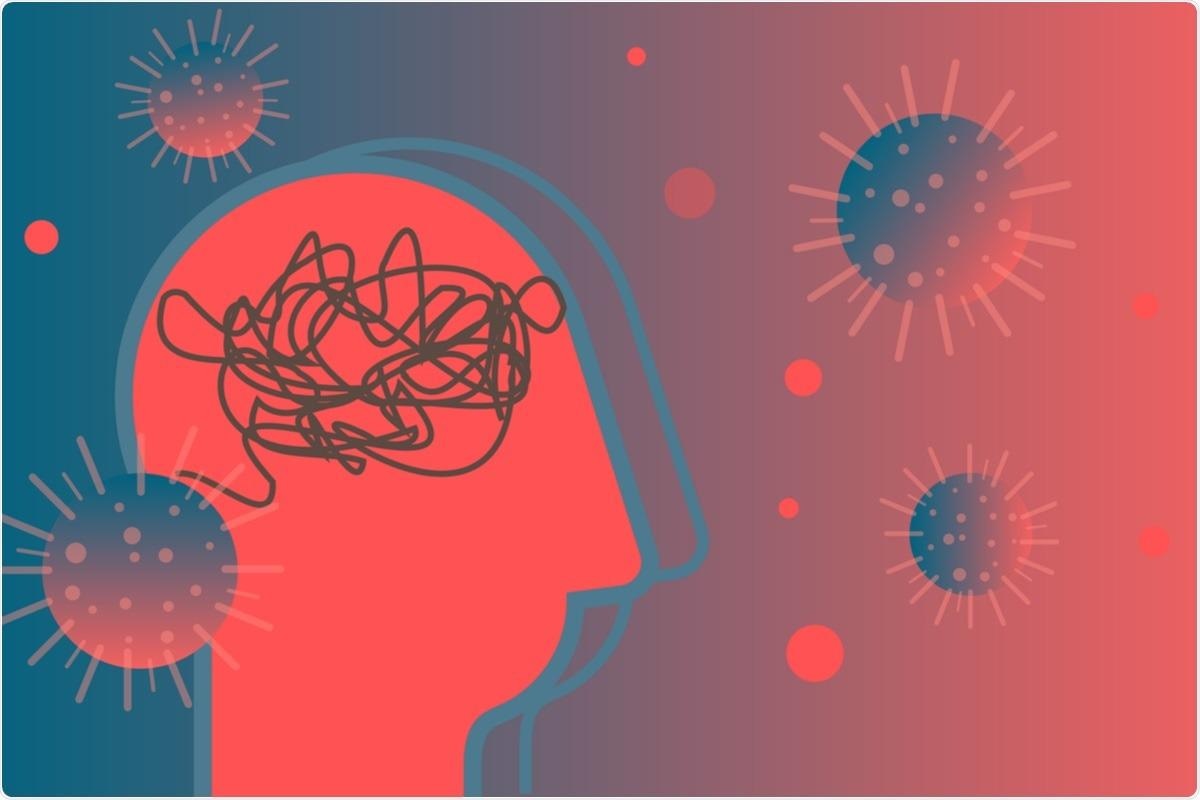A team of researchers recently provided insights into central nervous system consequences of the coronavirus disease 2019 (COVID-19) in a perspective paper published in the Science journal.
Severe acute respiratory syndrome coronavirus-2 (SARS-CoV-2), the causative agent of COVID-19, has been described as a respiratory pathogen, albeit the manifestation of extra-pulmonary symptoms in many COVID-19 patients, including nervous-system-related complications and neuromuscular disorders.
Some patients present with persistent symptoms like headaches, sensory disturbance, impaired concentration, depression, and psychosis after several months of contracting SARS-CoV-2, which is now described as a long-form of COVID-19 or long COVID. Acute COVID-19 and long COVID can occur even in the younger population who initially present with mild symptoms. Much needs to be learned about long COVID as its pathophysiological mechanisms remain poorly understood.
While the early evidence points to the immune dysfunction, including non-specific neuroinflammation, and anti-neural autoimmune dysregulation, it remains to be ascertained if any unforeseen neurological complications that might develop and persist for years after initial COVID-19 infection.

Viewpoint: Nervous system consequences of COVID-19. Image Credit: DesignPrax/ Shutterstock
Preliminary findings reported changes in cognitive abilities
Initial studies of neurological syndromes associated with COVID-19 noted changes in cognitive functions weakness in hospitalized patients, while other investigations observed inflammation or demyelination of the central nervous system (CNS) or peripheral nervous system (PNS). With the growing number of SARS-CoV-2 infections, there was mounting evidence of extra-respiratory disorders affecting multiple organ systems in COVID-19 patients.
A study of hospitalized patients in the United Kingdom (UK) showed that the frequently recorded neurological symptoms were anosmia (loss of smell), stroke, encephalopathy, inflammation of the brain, delirium, peripheral nerve syndromes, and primary psychiatric syndromes.
No evidence of SARS-CoV-2 RNA or antigen in CSF and brain
Studies examining the cerebrospinal fluid (CSF) of living COVID-19 patients have failed to detect viral RNA by reverse transcription-polymerase chain reaction (RT-PCR). Consistent with this finding, histological analyses of brain tissue of patients who died due to acute COVID-19 showed that only limited viral RNA or protein could be detected.
CSF samples examined from living patients with acute COVID-19 revealed neuroinflammation and upregulation of interferon (IFN)-regulated genes in dendritic cells. In addition, the autopsy of acute COVID-19 patients showed the activation of microglia across the brain and the infiltration of macrophages and CD8 T cells in perivascular regions.
Although single-cell analysis of brain tissue confirmed microglial activation and infiltration of T cells, there was no evidence of SARS-CoV-2 RNA in brain parenchymal cells. Although the robust immune response seen in the CNS could not be supported, a transient SARS-CoV-2 infection of brain tissue has been suggested.
Long COVID: The manifestation of persistent symptoms after acute COVID-19
Patients with acute COVID-19 have described persistent syndromes that are now known as long Covid. Most symptoms are neurologic that include memory and concentration difficulties, frequent headaches, autonomic dysfunction, intractable fatigue, delusions, and paranoia. People experiencing these symptoms are mostly below 50 years of age and were healthy before contracting COVID-19, and a majority of them were never hospitalized for acute COVID-19.
Studies have shown similarities of long COVID symptoms with those observed in myalgic encephalomyelitis/chronic fatigue syndrome (ME/CFS). Unfortunately, like long COVID, ME/CFS too is poorly understood and lacks effective disease-modifying therapies (DMTs), and more research into Long Covid could also be advantageous for ME/CFS patients.
An online study that involved 3,762 participants with long COVID noted that many of them had lingering symptoms for up to seven months after initial infection. In addition, imaging studies identified focal regions of brain atrophy in COVID-19 patients that were not seen in a control group without COVID-19 history. This could serve as a potential biomarker for the brain effects of SARS-CoV-2. Moreover, positron emission tomography (PET) scan of patients with COVID showed impaired metabolic activity of the brain, but its pathophysiology remains unknown.
The observation of neuroinflammation and neuronal injury has raised concerns over the potential development of neurodegenerative diseases (Alzheimer's or Parkinson's disease) in the future due to acute COVID-19.
Long COVID is not documented in children because they develop mild symptoms of COVID-19 and fewer neurological disorders. Still, those with a multi-system inflammatory syndrome in children (MIS-C) might be at a higher risk of nervous-system-related complications.
To summarize, more research is required to establish the pathophysiology of neurological complications that linger after COVID-19 infection and to effectively develop therapeutic interventions to mitigate the effects of Long COVID.